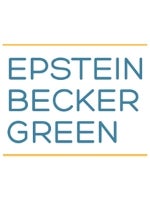Based on recent guidance from the Department of Labor (the “DOL”), many sponsors of employee benefit plans subject to the Employee Retirement Income Security Act of 1974, as amended (“ERISA Plans”) should have additional comfort regarding the impact of the conflict of interest rule released by the DOL in April 2016 (the “Rule”) on their plans. Even though it is widely expected that the Trump administration will delay implementation of the Rule, in mid-January 2017, the DOL released its “Conflict of Interest FAQs (Part II – Rule)”, which addresses topics relevant to ERISA Plan sponsors. As explained below, these FAQs indicate that the Rule, as currently designed, should not require a large number of significant changes in the administration of most ERISA Plans.
Covered Fiduciary Investment Advice Clarified
The FAQs indicate that most of the communications between ERISA Plan sponsors and their employees and plan participants will not be considered fiduciary investment advice covered by the Rule. Under the Rule, a “recommendation” is defined as a communication that, based on its content, context, and presentation, would reasonably be viewed as a suggestion that the advice recipient (for example, an ERISA Plan participant) engage in or refrain from taking a particular investment-related course of action. An investment-related course of action includes recommendations on transfers, distributions and rollovers from a plan or IRA. This distinction between recommendations and other types of communication is important because, if the person making the recommendation receives a fee or other compensation (direct or indirect), then the recommendation is fiduciary investment advice that is covered by the Rule.
For example, the DOL confirms that a recommendation to an ERISA Plan participant from the plan sponsor to increase plan contributions is not investment advice, as long as the plan sponsor does not receive a fee or other compensation for the recommendation. The DOL further states that, when employees of an ERISA Plan sponsor develop reports, recommendations and other deliverables for their employer, those employees are not providing fiduciary investment advice that is covered by the Rule.
Several of the FAQs explain why information frequently provided by ERISA Plan sponsors or their delegates to plan participants can be considered investment education, which is non-fiduciary advice and not covered by the Rule. The DOL provides the following information:
-
Product Feature Information. Information on product features, investor rights and obligations, fee and expense information, risk and return characteristics or historical return provided by representatives in the call center for a 401(k) plan (a type of ERISA Plan) is not investment advice, as long as the call center representatives do not address the appropriateness of the product for a particular ERISA Plan participant. The DOL indicates that this type of information is considered “plan information”, which is a type of investment education.
-
Increasing Contributions. Information provided to an ERISA Plan participant by a call center representative about the benefits of increasing contributions to a 401(k) plan to maximize the plan match is investment education and not investment advice.
-
Certain Interactive Investment Tools. Interactive investment tools that help ERISA Plan participants estimate future retirement needs and assess the impact of different asset allocations on retirement income may be treated as investment education, if the tools satisfy the conditions outlined in the Rule. These conditions include a requirement that the materials be based on generally accepted investment theories that take into account the historic returns of different asset classes.
-
An Asset Allocation Model. An asset allocation model offered by an ERISA Plan that is limited to the plan’s 15 designated core investments is investment education, even if the plan also has a brokerage window that offers an additional 2000 investment options. However, the model must provide information required by the Rule on the plan’s other designated investment alternatives with similar risk and return characteristics. The required information includes a statement identifying where information on these investment alternatives may be obtained.
Next Steps for Plan Sponsors
Based on these FAQs, many ERISA Plan sponsors will be able to conclude that most of their current plan administration policies and procedures will not run afoul of the Rule. Even if the DOL under the Trump administration modifies the Rule, it is unlikely that such modifications will impose significant additional restrictions or obligations on ERISA Plan sponsors.




 />i
/>i

